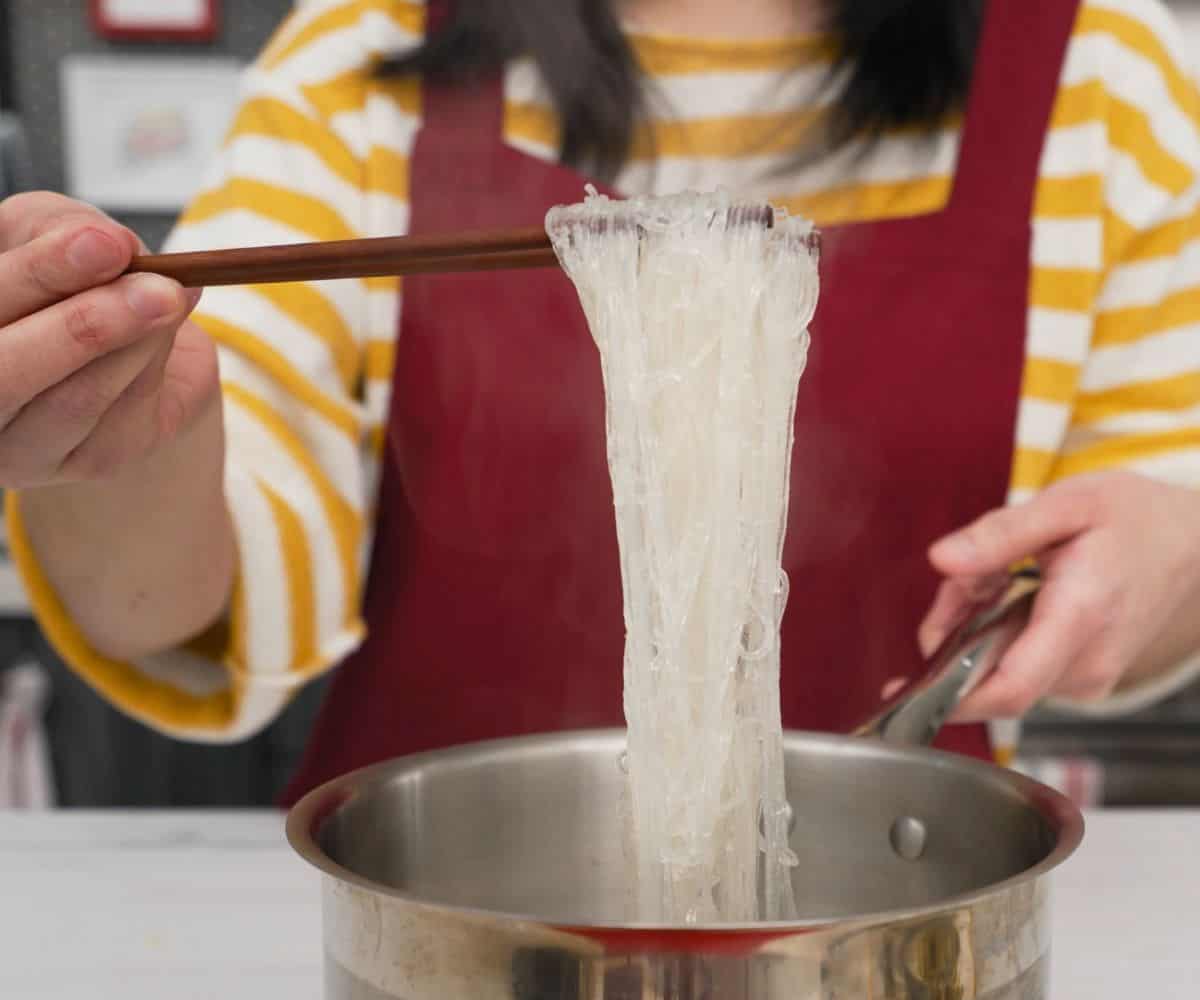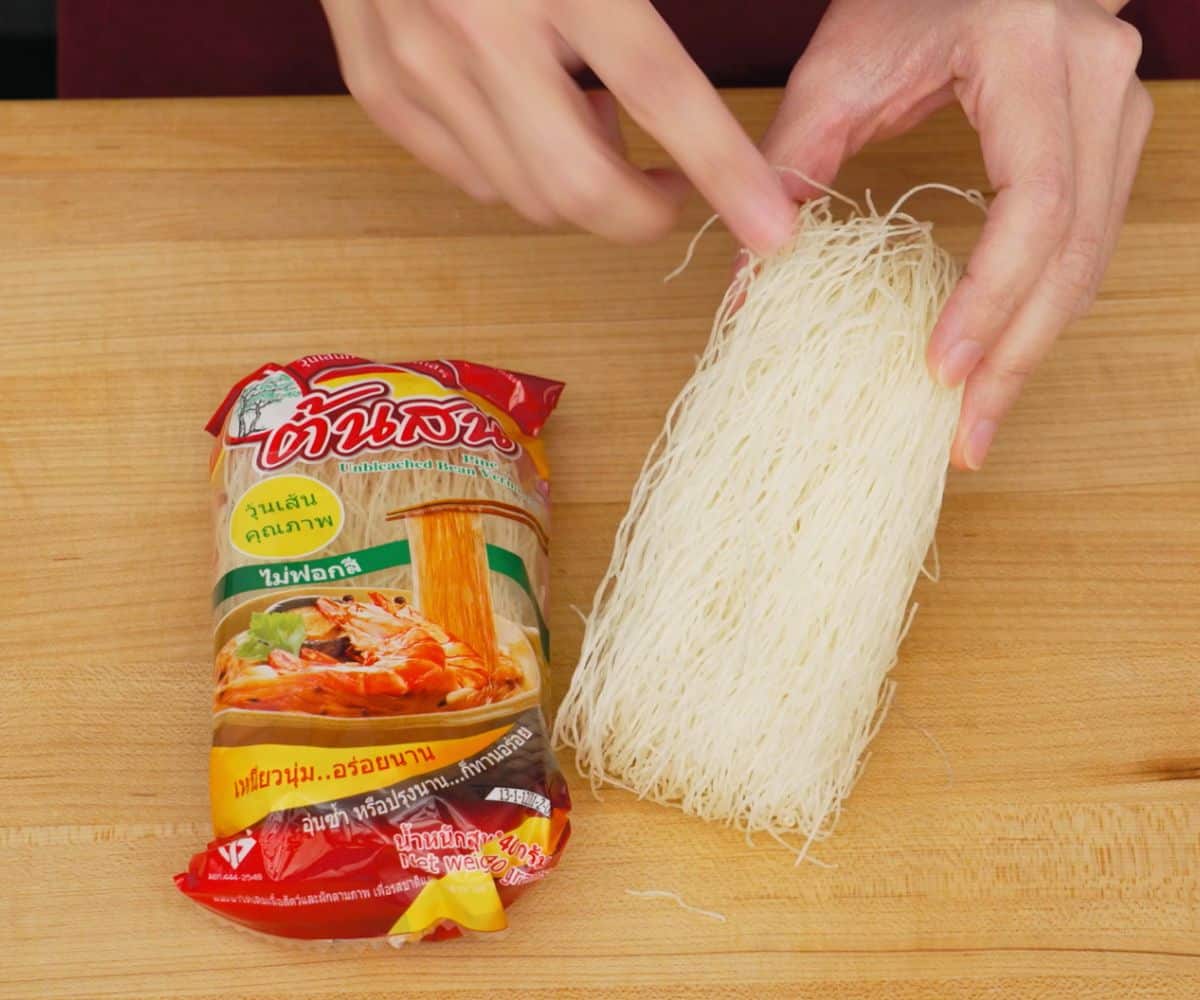What Kinds of Noodles Work Best?
Glass noodles, sometimes referred to as bean vermicelli or bean threads, are without a doubt the finest noodles to use for this technique. This is due to their extreme forgiving nature, which makes it difficult to overcook them, gives them a large window of good texture, and requires little stirring to cook through.

Because glass noodles have a lower glycemic index than wheat or rice noodles, they are regarded as the healthiest noodles in Thailand. They also have fewer calories per portion because they have a higher water absorption capacity. And yes, they are gluten free and vegan.
The recipe provided here is just an example; you can change up the seasonings and aromatics to whatever you want, but keep the ratio of noodles to water the same. Glass noodles also have a neutral flavor, so they will work with all kinds of seasoning – we even make pad thai with glass noodles in Thailand!

Look for a brand of glass noodles that is made entirely of 100% Mung Bean Starch for the best texture, like Pine Brand, who regularly sponsors our videos!
While rice noodles also work well in this recipe, stirring them more often is necessary to ensure even doneness and they are not as ideal because they overcook more easily. Therefore, you can use them, but it will require a little less delegating. See the ingredient section below for more information on how to use rice noodles.
Why Cook Noodles in a Rice Cooker?
Now that we understand how a rice cooker functions, it is evident that the types of noodles we are discussing here are dry noodles, not soups or other saucy noodles.
To be clear, you could cook soupy or saucy noodles in a rice cooker just like you would in a pot on the stove, but you couldn’t benefit from the auto-shutoff feature. Yes, you can use your rice cooker like a regular pot if you’re in a dorm room without a stove.
Do All Types of Rice Cookers Work for Noodles?
Theoretically, any rice cooker should function, but since we’ll be sautéing herbs directly in the appliance and not cooking rice, you’ll need to be aware of its peculiarities.